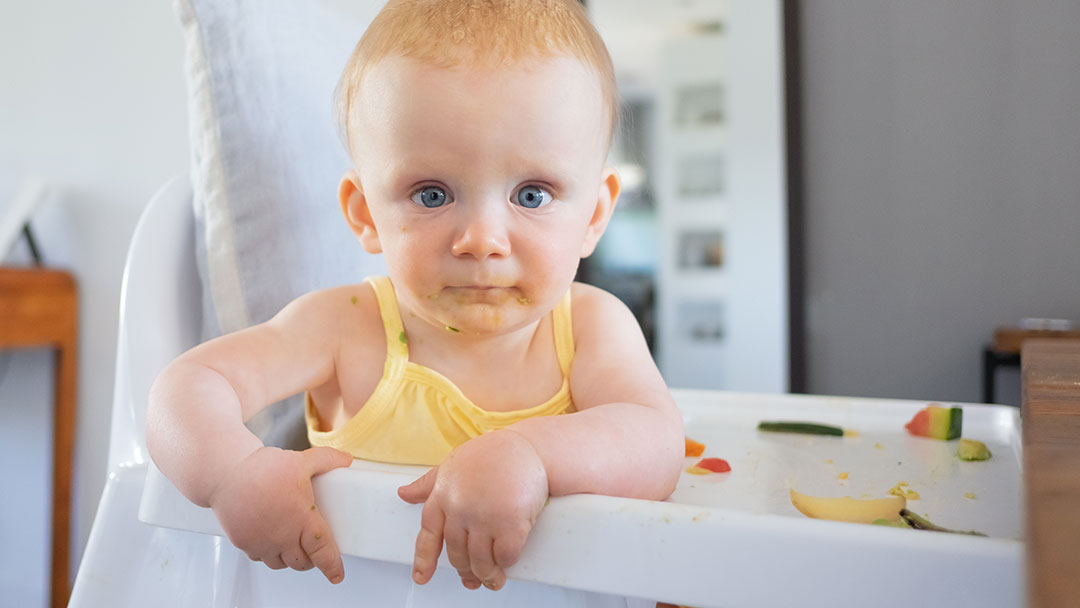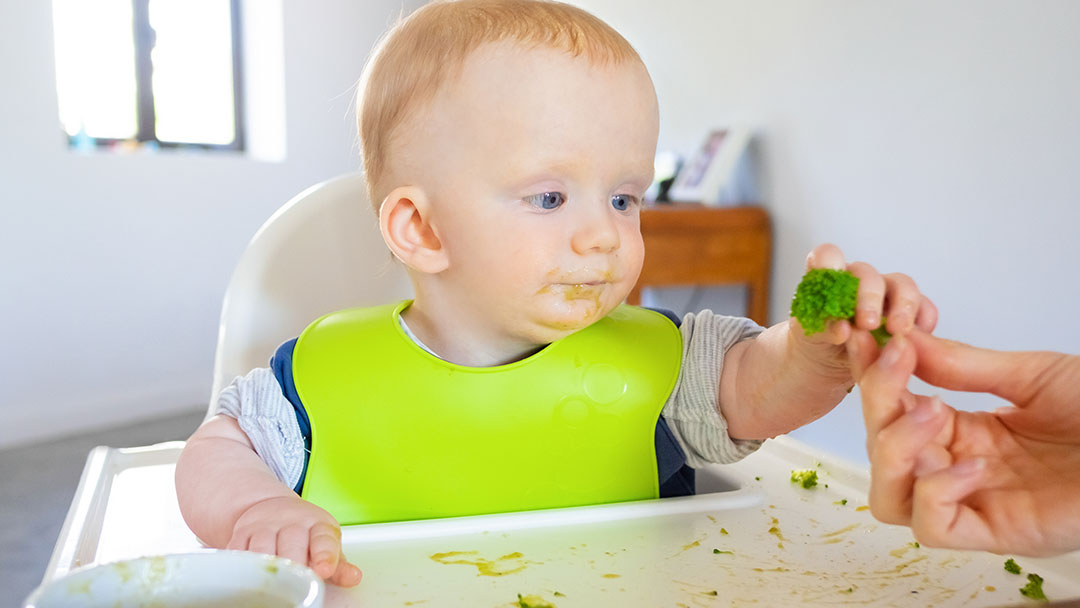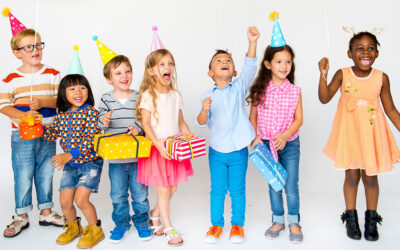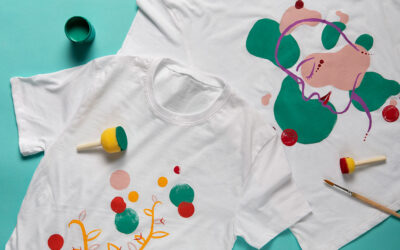Baby Led Weaning (BLW) has become increasingly popular among young families. The developmental benefits of self-feeding have convinced some parents to follow a strict, no-puree regime for their growing infants. But does BLW have any potential negatives, and is it the only option?
The rise of baby led weaning
Weaning your baby off breastmilk or formula, and onto solids, is a daunting process. It takes time, preparation, and a lot of research. Unfortunately, there is no straight-forward answer to the question every new mum asks, what should I feed my baby?
Traditionally, babies have been spoon-fed pureed foods to provide a mix of nutrients, and to help bub adjust to the eating experience. BLW is an alternative approach that encourages finger foods that bub can explore by themselves. Advocates for the method believe that offering soft, nutritious finger foods, will teach baby positive eating behaviours and support healthy weight gain. The child will engage with food at their own pace and therefore, learn how to independently regulate their food intake. In theory, the method has a lot of benefits, but like any trending practice, there are some potential issues to be addressed.

Baby led weaning is very popular, but there are negative sides to it too
What are the negatives of baby led weaning?
Encouraging your baby to feed themselves can be fun and engaging, but it can also be very messy. Food will end up all over your baby, the highchair, and the floor. Self-feeding also poses a few risks in terms of choking hazards and nutritional deficiencies. Babies are in need of iron-rich foods, which can be difficult to ensure when babies self-feed. Unfortunately, this beneficial approach is not perfect.
If you’ve found BLW to be overwhelming and difficult, you are not alone. According to a 2022 online study published in the Journal of Human Nutrition and Dietetics, many parents find BLW to be stressful. Mess and choking issues were a main source of anxiety for parents attempting BLW. The study also found that “many parents struggled to find a process (what to eat and when) within BLW, that they could follow”.
Key negatives of BLW
- Very messy
- More time consuming meals
- Choking hazards with harder, whole foods
- Difficulty chewing and swallowing finger foods
- The potential for less nutrients due to food preferences
- Higher parental anxieties with meal times
- More planning and research needed
- More wasted foods

Baby led weaning allows baby to explore and experience food
Is BLW the best approach?
Attempting to stick to a strict, baby-led weaning process may prove to be too difficult for your family. There are methods to combat some BLW issues, such as only offering safe, properly prepared, and nutritious finger foods. These methods can be time consuming and require research. The benefits of BLW are clear, but if the process makes it hard to provide nutritious meals, then it’s worth considering other options.
Traditional spoon-feeding can be used to introduce a range of foods in soft purees. This approach is easier in terms of choking and mess. In this approach, parents can puree or mash a mix of healthy foods and feed them to bub directly. However, this method requires parental control of food intake and limits your baby’s tactile exploration of food.
Alternatively, you can try a mix of traditional and baby led weaning. The Australian Government advice on the introduction of solids suggests offering a range of finger-foods and purees in the first year of life. By introducing a variety of foods and textures, your baby will be eating important nutrients and will still be learning some beneficial self-feeding techniques.
The government advice on the introduction of solids . More information on safe finger-foods and baby led weaning techniques can be found on the solid-starts online database.
By Annie Mayer-Rayment
Annie has been researching and writing her whole life. She graduated with a bachelor’s degree from Macquarie University in 2019. In 2022 she received a master’s degree from the University of Sydney. That same year, Annie joined the university of motherhood, welcoming her first baby in April.
Servicing Brisbane, Gold Coast, Sunshine Coast and beyond, Kids on the Coast is an online guide for parents with kids events, attractions & things to do with kids, schools and education, school holiday guides, health & wellbeing for families, parenting and lifestyle news located on Gold Coast, Sunshine Coast & Brisbane, QLD.


